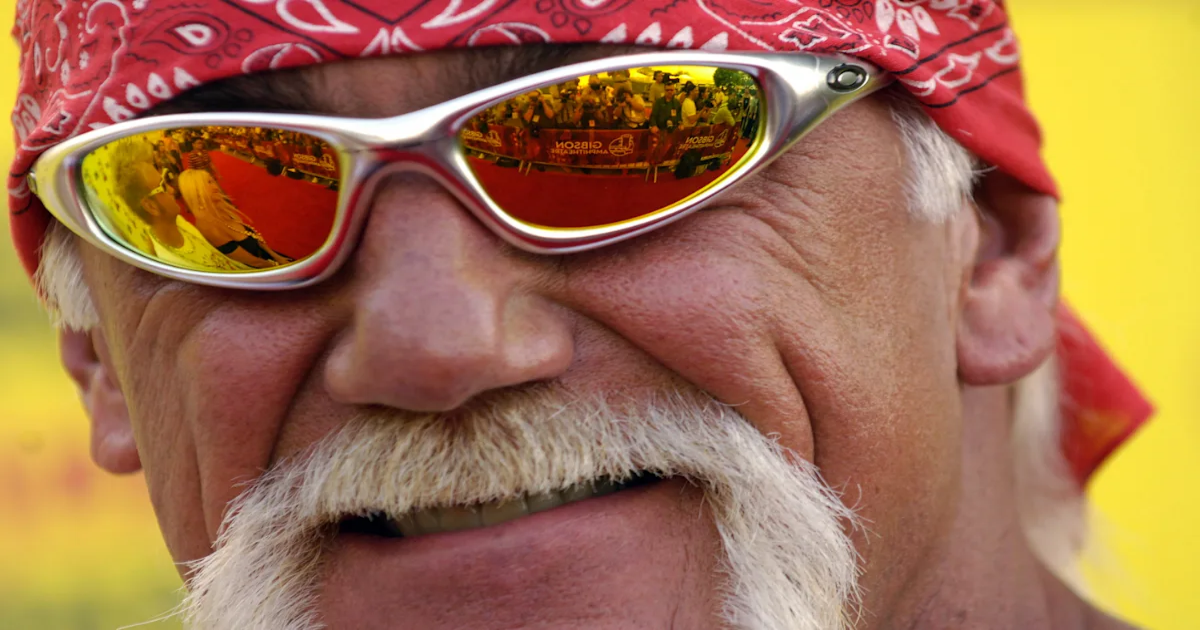A good friend of mine has, buried among his most precious possessions, the audio cassette version of Hulk Hogan’s 1995 album, “Hulk Rules.” Once every five years or so he’ll get it out to show people at a party.
On the cover you see The Hulkster in his mid-’90s uniform: yellow tank top, red bandana, blonde hair and handlebar mustache looking god-like and golden as he squats down and flexes in front of the American flag. Flip the tape over and you see a list of songs, including “Hulkster’s In The House” and “Hulkster’s Back” and “I Want To Be A Hulkamaniac.”
Advertisement
Advertisement
But the best part, my friend will tell you as he flips open the cassette, is in the liner notes. There you’ll see a message to the listener that begins: “Millions of adults and children in the United States and around the world know that Hulk Hogan is the most powerful force in the universe.”
They don’t believe this, mind you. They don’t think he’s more powerful than gravity itself. They know it. And the craziest part? If you were a kid in America in the 1980s and ’90s, yeah, that seemed about right. Hogan wasn’t just a superstar — he was a force of nature. Who could be bigger than him?
A lot of those kids, now firmly in middle age, likely thought of this Hogan when they first heard the news of his death Thursday. Maybe they pictured that avatar of Hulkamania, flexing and posing and tearing his shirts in two. Or maybe they stuck around as wrestling fans long enough to also think of the “Hollywood” Hogan of the WCW days, the black-bearded villain who made the unthinkable decision to go bad while doing it so good.
Hulk Hogan died at the age of 71 on Thursday, leaving behind a complicated legacy with many pro wrestling fans. (REUTERS/Chris Pizzello)
(REUTERS / Reuters)
The true lifers will also, of course, think about all the other stuff. His racist remarks. His sex tape and the ensuing lawsuit that brought down a media empire. His self-parodying right-wing, stage-prop era. His refusal to even consider what it might mean when he was getting showered by boos during a WWE cameo appearance near the very end.
Advertisement
Advertisement
All those different versions of the man, stacked on top of each other like sedimentary layers in the minds of fans. Now this bit of finality with news of his death at the age of 71. No new layers will be added. Time to consider the finished product and decide for yourself what to make of it all.
If you didn’t live through those Hulkamania days, it’s tough to fully understand the grip Hogan had on the hearts and minds of 8-to-14-year-old boys back then. More than any other single professional wrestler, he brought wrestling into the living rooms of an entire generation of fans. He was an action figure come to life. His character was big and bright and simple enough for a child to understand. Here was the good guy bringing justice and violent joy to the world on behalf of and at times directly fueled by his ocean of fans. Just the kind of thing a slack-jawed kid sitting six inches from the TV on a Saturday morning might go for.
Do those kids become wrestling fans in a world without Hogan? Some of them, maybe. Not all, certainly. Hogan was the cultural phenomenon that forced mainstream America to take wrestling seriously — in a way. You could look down your nose at it all with an air of smug superiority if you wanted to, but you simply could not pretend you didn’t know who Hulk Hogan was. Everybody knew him. Yes, they did.
Even through the predictable series of bad movies and some bad headlines (and one bad album), the power of his celebrity remained such a force he was the lone free agent who could almost singlehandedly flip the business on its head by leaving one wrestling promotion for another.
Advertisement
Advertisement
It was only later that a lot of fans asked themselves: Wait, what if it turns out I don’t actually like this guy as a human being? Well, then it’s as if he’s not just failed them — he’s actively sabotaged all those pleasant childhood memories they had of him. He’s complicated the simple fun of that almost painfully wholesome character. So some people hated him for that. Some probably hate him still.
But death has a way of shearing off some of those sharp edges. Well, death and time. One pulls at the sympathetic human threads dangling around the softer parts of our hearts. The other works like erosion, slowly smoothing out some of those jagged points in our memories.
Advertisement
Advertisement
What Hulk Hogan meant to the wrestling business is unquantifiable. It’s like asking what the electric guitar meant to rock music. Then Terry Bollea had to go and ruin that.
But you look around at the headlines this week and you realize it’s the Hulkster — one or two or maybe more versions of him, but still him and not so much Terry — that people are mourning. He was here. He exerted an almost supernatural force. He left the landscape so much different than he found it. And then he was gone.
That evokes some complicated feelings, but complicated isn’t necessarily bad. We’re not 8 years old, sitting cross-legged on the carpet anymore. So fine, let it be complicated. But also let it be true. Let it tell the whole story. Then hit the music one last time and let us remember what it felt like when there was a force we all knew to be more powerful than any other, back when knowing such things was as simple and easy as Saturday morning in front of the TV.
